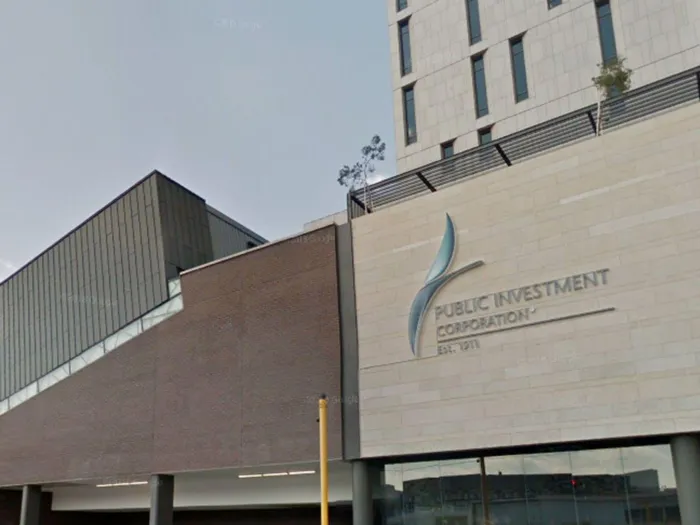Parliament sets sights on probing allegations of "mega-looting" at PIC
PARLIAMENT

In his letter dated 29 October 2025, Holomisa warned that the alleged irregularities represented “a situation of enormous proportions that rivals the State Capture scandal itself,” arguing that decisive, immediate intervention — not another commission of inquiry — was required to prevent further losses.
Image: IOL / File
Banele Ginindza
Parliament has confirmed that it is following up on allegations of financial mismanagement and governance failures at the Public Investment Corporation (PIC) that could threaten the stability of the R3.5 trillion public servants’ pension portfolio.
The move follows explosive claims by United Democratic Movement (UDM) leader, Bantu Holomisa, who wrote to President Cyril Ramaphosa and Parliament’s Standing Committee on Public Accounts (Scopa) alleging “continued looting, mismanagement, and administrative bungling from top to bottom” at the PIC and its Isibaya Fund.
In his letter dated 29 October 2025, Holomisa warned that the alleged irregularities represented “a situation of enormous proportions that rivals the State Capture scandal itself,” arguing that decisive, immediate intervention — not another commission of inquiry — was required to prevent further losses.
He cited the Mpati Commission — established in 2018 by Ramaphosa to investigate impropriety at the PIC — as having exposed systemic governance failures, particularly within the unlisted investments portfolio, the Isibaya Fund.
Scopa Chairperson Songezo Zibi confirmed to Business Report over the weekend that the committee had taken note of the allegations and would be formally engaging the PIC to obtain clarification and evidence on specific transactions and some practices.
"That information will assist Scopa in determining a cause of action," Zibi said.
"For example, where there are allegations of inflated asset prices, the PIC needs to indicate whether there were independent asset valuations and for those to be provided. In that way the committee can ascertain whether the price paid is in line with the valuation."
Among the transactions under scrutiny is the proposed acquisition of airline FlySafair, reportedly valued at R7.9 billion — nearly double its estimated fair market value according to Holomisa.
Holomisa likened the proposal to the aborted Karan Beef deal, warning it could result in “massive value destruction” for pension fund members.
He also cited growing internal dysfunction at the asset manager, including the recent suspension of chief investment officer, Kabelo Rikhotso, amid allegations of political interference and factional power struggles that have “compromised institutional integrity.”
In addition, Holomisa referenced the July 2025 bribery scandal involving former Unlisted Investments head Thabiso Moshikara, who was accused of soliciting a R3 million bribe, as well as the ongoing collapse of Daybreak Foods, a black economic empowerment investment that has received repeated capital injections despite consistent losses.
Daybreak Foods, placed under business rescue in May 2025, received an additional R150 million bailout from the PIC in July — an act Holomisa said “illustrated the PIC’s lack of effective oversight, proper risk assessment, and consequence management.”
Holomisa further accused several major commercial banks of structuring self-serving deals that protected their own exposure while leaving the PIC — and ultimately public servants — to shoulder the risk.
In his letter, Holomisa called for:
Parliamentary hearings involving the PIC and the Government Employees Pension Fund (GEPF);
Forensic audits of the Isibaya Fund by the Auditor-General and the Special Investigating Unit;
A review of the PIC board’s independence and composition;
Quarterly public disclosure of all Isibaya investments;
Performance-linked remuneration for investment dealmakers; and
A moratorium on Isibaya Fund activities, with its developmental mandate possibly shifted to the Development Bank of Southern Africa (DBSA) or the Industrial Development Corporation (IDC).
“The loss ratios of over 39% are purely criminal. No credible institution allows such brazen looting in the name of empowerment,” Holomisa wrote. “Ultimately, the State and the South African public are the real losers.”
He warned that without urgent intervention, the PIC risked remaining “a vehicle for political patronage”, undermining the financial security of millions of public servants whose pensions it manages.
“The sophistication of the financial engineering and contracts used to hide the looting means many hardly understand the deal structures,” he said. “South Africa needs to know that something worse than State Capture continues to thrive at the PIC.”
Meanwhile, the PIC last week released its third G20 Research Paper – Re-industrialising South Africa: Can Institutional Capital Spark SA’s Next Industrial Boom, which argues that institutional investors have and can achieve competitive, risk-adjusted returns while driving measurable economic growth and job creation through investments in new opportunities to re-industrialise South Africa.
The research argues that doubling investment in industrialisation over the next five years could add R100bn in real output and create over 250 000 jobs, focusing in particular on agro-processing, mining beneficiation and automotive manufacturing.
BUSINESS REPORT